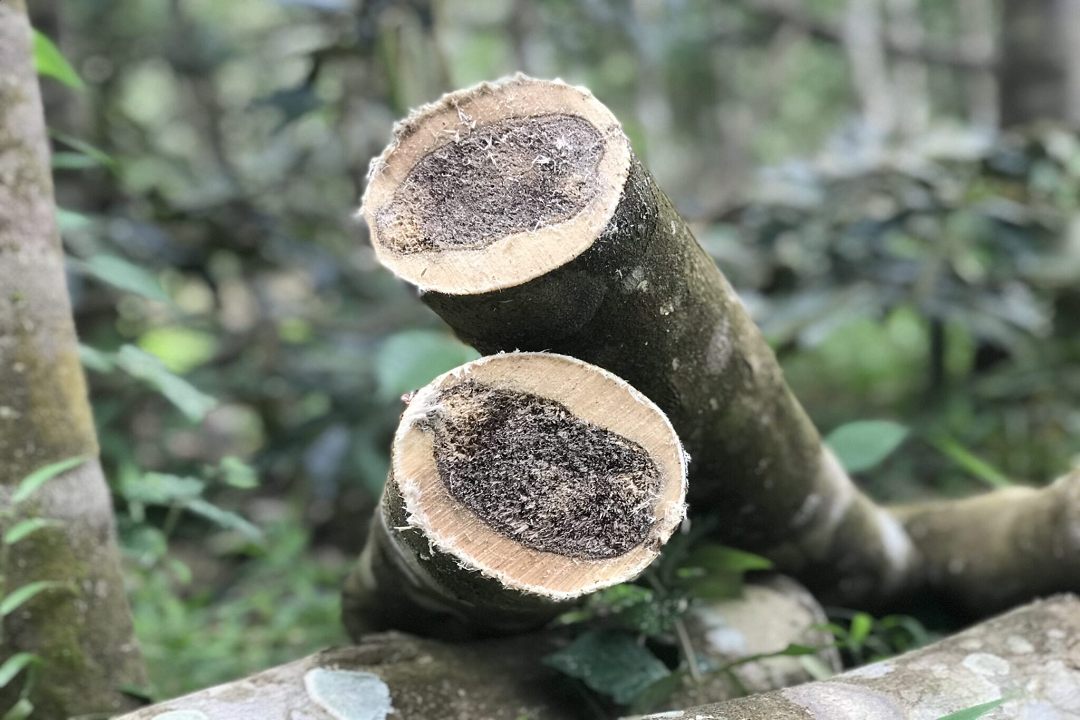
Malaysia is currently one of 12 countries in the world that grows and produces natural Agarwood as well as the refined oil produced from the wood, known as Oud. While all types of Oud have a common baseline often described as musky, aromatic, and sweet, Malaysian Oud is particularly smokey. Because of this unique scent profile, it is generally one of the more sought-after varieties of Oud as it has a slightly more dark textured, and masculine touch to it and if we take a look at the history of Agarwood in Malaysia, we can see that this fragrant tree has been a part of the culture for centuries.
The Aquilla trees from which Agarwood is harvested grow all over the jungle biomes of Malaysia and while there are specific Agarwood plantations, the trees are quite common in the wild as well. Residents of the country, as well as travellers, are permitted to take a certain amount of Agarwood from wild-growing trees given the trees have not been classed as endangered and many locals rely on them to make a living. So, while it is entirely possible to buy Agarwood from a vendor anywhere in the country, the more high-quality versions are harder to come by. Agarwood has a very specific classification guide in Malaysia which relies solely on the amount of resin produced by the wood. The more resin the more valuable the wood given you will be able to extract more Oud from it. The best possible version of Malaysian Agarwood is referred to as Super Grade, which is pound-for-pound worth more than gold and is typically only bought by the few niche brands to create intoxication mixes.
As mentioned before, while it is entirely possible to find and harvest wild Agarwood, there are a few important things to take into consideration. During the lifespan of an Aquilla tree, they produce a seed roughly every 7-9 years which can then be used to plant and grow a new sapling. Therefore, redistributing and maintaining the populations of the trees is incredibly difficult as a result of their slow growth period. Furthermore, to harvest Oud from the tree it needs to be wounded and infected with a fungus which will cause it to secrete its fragrant resin which can then be refined into Oud. This process can quite easily lead to the tree being killed if not done properly and, if done by someone who does not have adequate experience, the yield of Oud can be small and insignificant which makes the tree dying all the more unfortunate. Because of these factors, the Malaysian government has taken steps to discourage the harvesting of wild Agarwood to preserve the species. We would encourage any visitors to the country to make sure that they purchase Oud from ethical plantations as opposed to wildly sourced wood, not only will it discourage illegal foraging, but you will also likely receive a higher quality Agarwood or Oud.
Now that we’ve shared some information on the current state of Agarwood in Malaysia, let’s take a quick look at the history of this fascinating product. Just as we celebrate Oud for its divine scent today, so did inhabitants of Malaysia centuries ago when harvesting it first began. The wood had a few main uses, the resin would naturally be used as a fragrant oil or incense which could be kept in one’s home or rubbed onto your body, the sweet-smelling wood which produced the Oud is referred to as gaharu in Malaysia. Smaller, chipped pieces of wood, on the other hand, would be carved into idols or decorative carvings for a range of uses, from helping with fertility to ensuring healthy crops in addition to being a symbol of love and those who pracice Islam. Finally, the large planed wood harvested from the trees would be used to create furniture, altars and coffins which is similar to what the ancient Chinese did with Agarwood.
Agarwood is an incredibly valuable and scarce resource that has been in high demand since its original discovery. The steady and slow nature of the Aquilla trees that produce it in addition to the rather taxing and scientific process required to harvest Oud from it showcases exactly why it is as costly as it is. This, paired with the fact that nothing can mimic the scent of Oud, makes for a highly desired product that requires skill, patience, and dedication to harvest. By observing the modern-day plantations of Malaysia in addition to their historical practices we can begin to understand how they have managed to make this tree such an integral part of their culture and economy. By emphasizing the preservation and proper harvesting techniques in the same way the Malaysian government has we can hopefully keep these natural marvels around for centuries to come so that our descendants may too experience agarwood.
